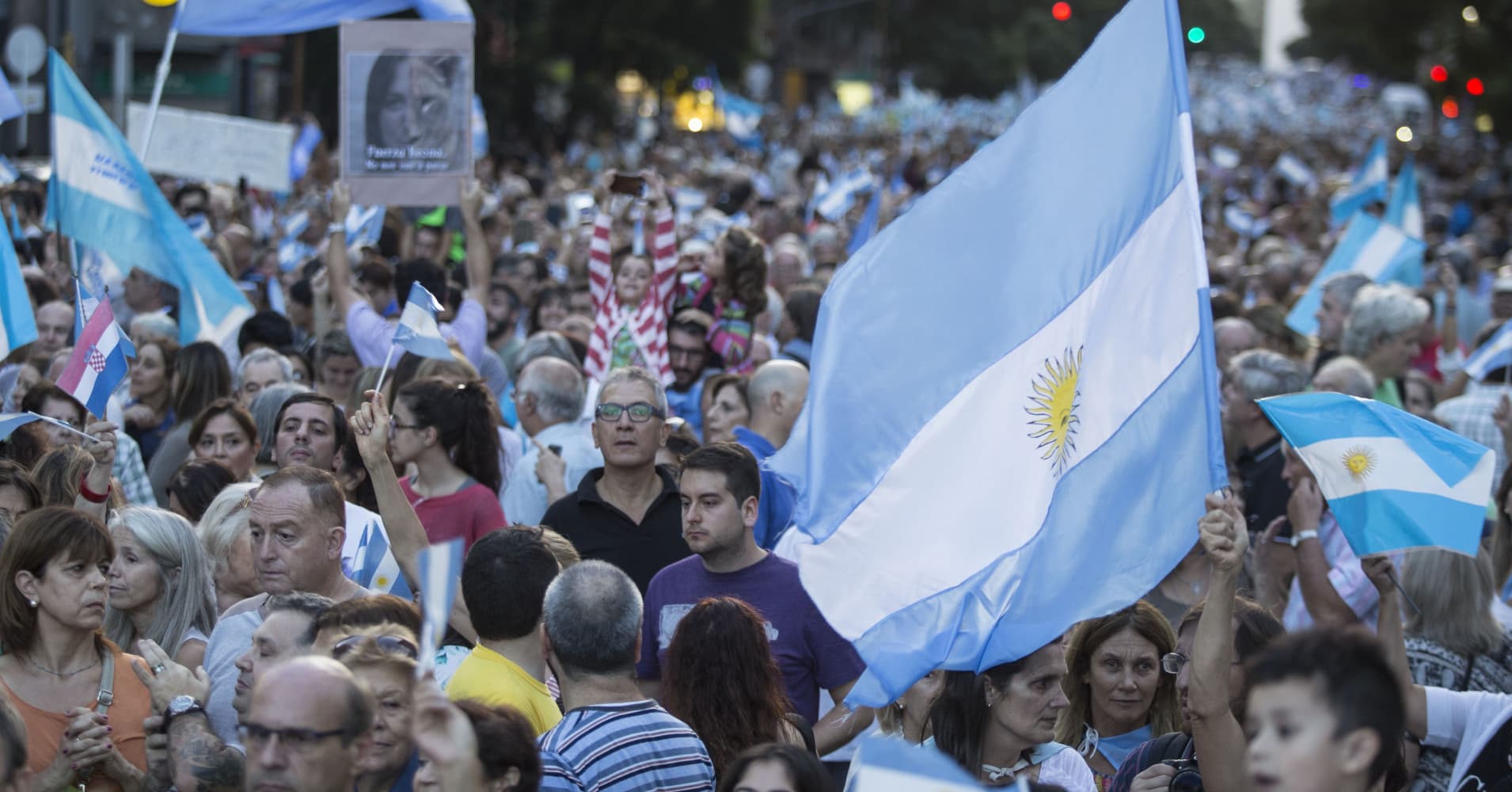
Pro-business leaders in Argentina and India have been thrust into an emerging market currency rout that threatens their credibility and reelection hopes.
Both Argentina's President Mauricio Macri and India's Prime Minister Narendra Modi are pro-business leaders who promised better economic times ahead, often using economic data as evidence of their success. They both face reelection next year.
But while progress has been made, the recent currency crisis in both countries could hurt confidence.
In 2015, Macri was the face of change for Argentina. He promised citizens he would turn around South America's second largest economy, which had been suffering from lavish public spending, and make it strong enough to be able to sell government bonds again to investors after being shut out of the market for years.
Argentina issued bonds again in 2016 as Macri sold the Argentina story to foreign investors promising them this time around things would be "different." But then things fell apart again, as the recent move in the Argentine peso suggests.
Despite the central bank's attempt to combat runaway inflation, the peso continues to tumble, and is the world's worst performing currency in 2018. It shed 20 percent against the dollar over two days this week alone.
"I hope he can stick around to follow thru with what is needed," said Peter Boockvar, the chief investment officer at Bleakley Advisory.
External organizations, like the International Monetary Fund, could ultimately save Macri. Argentina asked for an early release of a $50 billion loan from the IMF on Wednesday.
"The IMF's recent agreement to alter the terms of its lending program to Argentina shows the IMF's continuing willingness to engage constructively with the country. Moreover, it shows a commitment to Macri's economic agenda," said Gavin Serkin, managing editor of Exotix Capital.
If not, political analysts say, Macri will likely face strong opposition. Recent polls already show citizens are losing faith in their leader.
While India's economy is much larger than Argentina's, it too could suffer from the emerging market currency rout. The Indian rupee touched an all-time low this week, 70.8100 against the dollar.
But for Modi, experts say rising oil prices could be a bigger concern for India, a net oil importer.
"[Oil] is a bigger political issue for Modi because he scaled back the energy subsidies and the Indian consumer is really feeling the effects of the price increase in a way that they were not before," said Helima Croft, Head of Commodity Strategy at RCB Capital Markets.
The latest data on India's economy suggests the country's growth story remains intact. Friday morning, India's government reported that gross domestic product grew 8.2 percent in the three months through June compared with a year earlier.
Modi will likely ignore the rupee depreciation and tout the country's strong growth story as he looks to get reelected next year. But skeptics are already casting doubt. Ruchir Sharma of Morgan Stanley said Modi's chances of getting re-elected have dropped to 50 percent.
from Top News & Analysis https://ift.tt/2C4h4Bbvia IFTTT
No comments:
Post a Comment